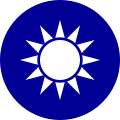The 3rd Conference of the 4th Session
On April 21, 1947, the National Government decided to convene the Fourth Session of the Third National Political Consultative Conference in Nanjing on May 20. On April 26, the Standing Committee of the National Political Consultative Conference held a meeting and invited Huo Baoshu, Director of the Executive Yuan's Relief and Rehabilitation Administration, to report on the relief work in the past year. On May 20, the Fourth Session of the Third National Political Consultative Conference opened. Chairman Zhang Boling delivered a speech, hoping that peace would be achieved soon. Chiang attended the meeting and delivered a speech, saying that whether peaceful reunification could be achieved depended entirely on whether the Chinese Communist Party stopped its military operations and restored national transportation. On May 21, Executive Yuan President Zhang Qun reported on the government's work to the National Political Consultative Conference. The council members raised more than 100 oral and written questions on domestic peace issues and people's livelihood issues. [5]
On May 23, Finance Minister Yu Hongjun reported to the National Political Consultative Conference on the financial situation, saying that last year's budget deficit was 270 million yuan, due to excessive military expenditures and demobilization relief expenditures; in response to the questions of the Political Consultative Conference members, he said that the investigation reports of Zhongfu and Yangshi could not be made public, and the Huang Jinchao case was still under trial. Minister of Food Gu Zhenglun reported that the method of managing grain was to sell off grain, suppress the trend of price increases, and distribute it at a fair price. On May 24, the National Political Consultative Conference continued its meeting. Minister of Agriculture and Forestry Zuo Shunsheng, Minister of National Defense Bai Chongxi, and Minister of Transportation Yu Dawei reported on the situation of agriculture, forestry, national defense, and transportation respectively, questioned the military report, and had different opinions on war. On May 28, the National Political Consultative Conference held a review meeting to discuss the peace issue: Kuomintang councillors advocated "government suppression of rebellion" and "issued clear orders to attack"; other councillors, including Xu Deheng, Huang Yanpei, Cheng Ximeng, Wang Zaoshi and more than 10 others, asked the conference to put the people first, formulate a peace plan, and appeal to both the government and the Communist Party for peace. After the councillors finished speaking, the presidium announced that the peace proposal would be submitted to the special review committee for review. [5]
On May 25, Minister of Education Zhu Jiahua reported on education work at the National Political Consultative Conference. The political consultants severely questioned the student movement. Zhu Jiahua said that the student movement was caused by the activities of Communist Party members in the school. On May 26, Minister of Water Resources Xue Dubi and Minister of the Interior Zhang Lisheng reported on water resources and interior affairs to the National Political Consultative Conference. On May 27, the National Political Consultative Conference continued its meeting. The Ministry of Economic Affairs, the Resources Committee, and the Relief and Rehabilitation Administration reported on their work respectively. At this point, the reporting work of all units under the Executive Yuan was completed. In the evening, Chiang Kai-shek hosted a banquet for the political consultants, saying that whether peace could be achieved depended entirely on the attitude of the Communist Party. On May 28, Chiang Kai-shek gave a speech to the political consultants, saying that the government's original intention of peace had never changed, and that the student action was completely planned by the Communist Party. The government had no choice but to issue the "Provisional Measures for Maintaining Social Order." On May 31, the Political Consultative Conference decided to ask the government to negotiate a loan from the United States and try its best to recover Lushun and Dalian to prevent Japan from rebuilding its military. [5]
On May 26, the National Political Consultative Conference passed a temporary motion, requesting the conference to discuss the peace plan, and invited the CCP political consultants to Nanjing to attend the meeting. On May 27, the Shanghai Municipal Political Consultative Conference sent a telegram to the government asking it to resume peace talks with the CCP, sent a telegram to Mao Zedong urging him to come to Nanjing for consultation, and sent telegrams to various legal bodies calling for peace. On May 30, the National Political Consultative Conference divided into groups to review the work report and related proposals. [5]
On June 2, the National Political Consultative Conference discussed, reviewed and passed 480 proposals and declared closed. The conference elected 31 resident members. On June 6, Chiang presided over the State Council meeting to discuss the peace plan of the Political Consultative Conference and said: Whether peace can be achieved depends entirely on the attitude of the Chinese Communist Party. [5]
On July 31, the National Government Gazette No. 2829 stated that seven current members of the Chinese Communist Party's Political Consultative Conference, namely Mao Zedong, Lin Zuhan, Chen Shaoyu, Deng Yingchao, Dong Biwu, Zhou Enlai and Wu Yuzhang, were expelled from the committee. [5]

